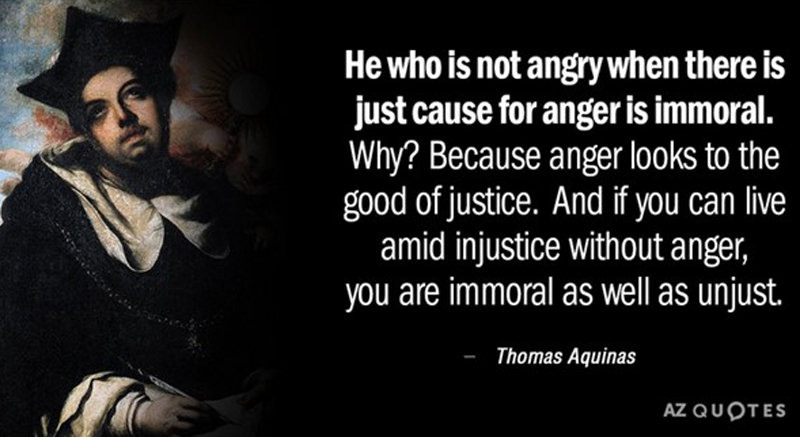(1225-1274)
Thomas was born, the youngest of eight siblings, in Roccasecca, Italy to count Landolfo of Aquino and countess Theodora of Teano.
Before his birth, a holy hermit told Theodora that her son would enter the Order of Friars Preachers, become a great learner and achieve unequaled sanctity. He began to live up to that prediction as a child when he was sent at 5 years old to begin his education at the Abbey of Monte Cassino among the Benedictine monks. He was described as “a witty child” who “had received a good soul.” At Monte Cassino, the quizzical young boy repeatedly posed the question, “What is God?” He remained there for 13 years.
He continued his education at the Benedictine house of Naples, studying the classics, especially Aristotle, whose work would have lasting influence on his own philosophy. Exposed to a broader society, he developed an interest in a life of spiritual service, in contrast with the more traditional views and sheltered lifestyle he had observed at the Abbey of Monte Cassino.
In 1243, as a student at the University of Naples, he secretly joined an order of Dominican monks, receiving the habit in 1244. When his family found out, they felt so betrayed that he had turned his back on the principles to which they subscribed that they decided to kidnap him.
Thomas’s family held him captive for an entire year, imprisoned in the fortress of San Giovanni at Roccasecca. During this time, they attempted to deprogram Thomas of his new beliefs. Thomas held fast to the ideas he had learned at university, however, and went back to the Dominican order following his release in 1245.
Thomas continued his studies among the Dominicans in Naples, Paris and Cologne. He was an outstanding scholar, but because of his extreme modesty his classmates thought he was dim-witted. When his professor St. Albert the Great had read Thomas’s thesis he proclaimed, “We call this young man a dumb ox, but his bellowing in doctrine will one day resound throughout the world!”
In his time, the prevalent school of thought was the concept of “the theory of the double truth.” The relationship between theology (faith) and philosophy (reason) were conceived as separate and opposite entities. Thomas insisted that both kinds of knowledge come from God and were absolutely compatible. He believed that revelation through faith could guide reason and prevent man from making mistakes. He also sustained that reason clarifies and demystifies faith. His views, writings and teachings made him sought after by universities and religious institutions.
St. Thomas Aquinas believed that the existence of God could be proven in five ways — observing movement in the world as proof of God, the “Immovable Mover”; observing cause and effect and identifying God as the cause of everything; concluding that the impermanent nature of beings proves the existence of a necessary being, God, who originates only from within himself; noticing varying levels of human perfection and determining that a supreme, perfect being must therefore exist; and knowing that natural beings could not have intelligence without it being granted to them it by God.
After defending people’s ability to naturally perceive proof of God, Thomas also tackled the challenge of protecting God’s image as an all-powerful being.
St. Thomas teachings crossed from religious realm to the secular. He said that the laws of the state were, in fact, a natural product of human nature, and were crucial to social welfare. By abiding by the social laws of the state, people could earn eternal salvation of their souls in the afterlife, he purported. St. Thomas Aquinas identified three types of laws: natural, positive and eternal. According to his treatise, natural law prompts man to act in accordance with achieving his goals and governs man’s sense of right and wrong; positive law is the law of the state, or government, and should always be a manifestation of natural law; and eternal law, in the case of rational beings, depends on reason and is put into action through free will, which also works toward the accomplishment of man’s spiritual goals.
Aquinas wrote at least 60 known works of varying length. After his death his works rose to universal acclaim. His influence has inspired at least 6,000 commentaries on his work.
Adapted by A. J. Valentini from: B. (2020, September 10). St. Thomas Aquinas. Biography. https: //www.biography.com/religious-figure/saint-thomas-aquinas
